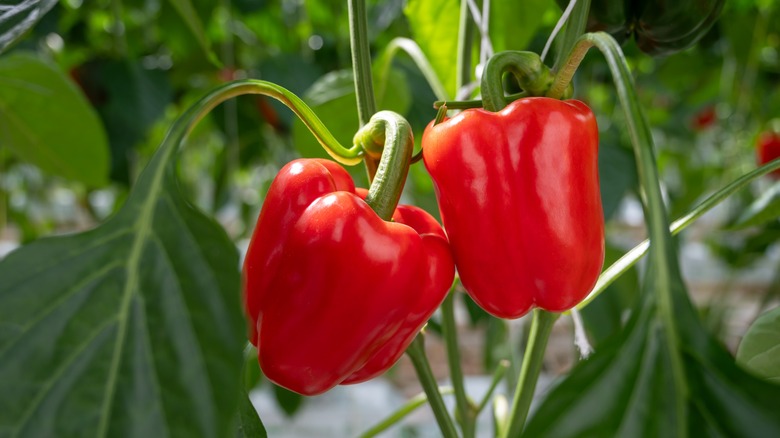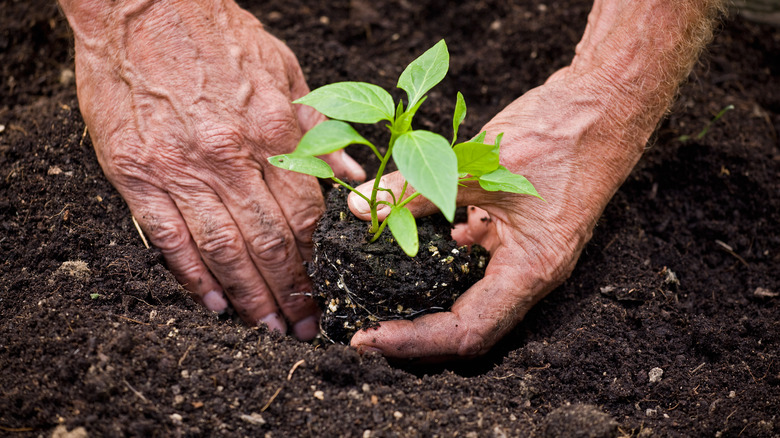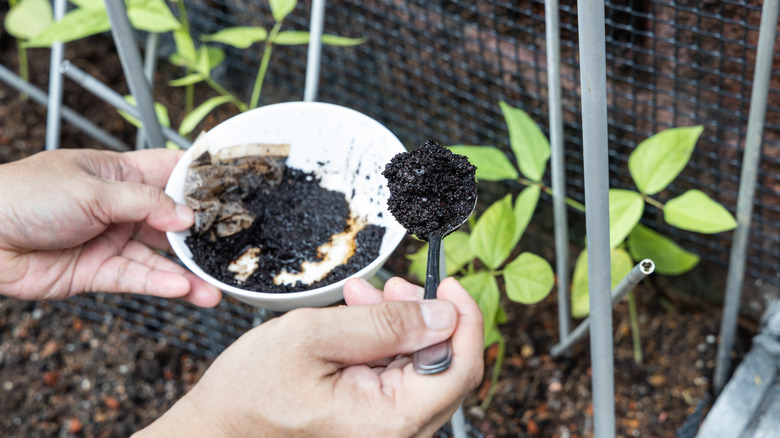Why People Sprinkle Coffee Grounds On Their Pepper Plants (& Should You Try It?)
People are always on the lookout for natural and organic ways to help their pepper plants thrive. One method that has gained in popularity in recent years is to sprinkle coffee grounds around pepper plants and there are some valid reasons for this. In fact, there are many genius ways to use coffee grounds in your yard and garden. For a start, coffee grounds do contain some valuable plant nutrients that are released slowly as the grounds are broken down, and they're said to repel ants and aphids which might be beneficial to your pepper plants to keep them relatively pest-free. Plus, the worms in your garden will love the coffee grounds and help to break them down to produce castings which are great for all the plants in your garden including your pepper plants. These are all good reasons for sprinkling some coffee grounds around your pepper plants.
But before you reach for that pack of ground coffee you have in your pantry, remember to avoid one major rookie mistake when using coffee grounds in the garden by ensuring that you only add brewed grounds and never fresh ones. The brewing process removes most of the acidity from the coffee grounds, making them safe to add to your garden in small amounts.
What nutrients can your pepper plants absorb from coffee grounds?
Coffee grounds contain around 2% nitrogen but they need to be broken down before this is available to the plant roots. This can be beneficial to pepper plants because the nitrogen will be released slowly to promote healthy plant growth. While pepper plants need ample amounts of nitrogen to grow into strong healthy bushes, they also need decent amounts of phosphorus and potassium for good root formation and fruit production. Coffee grounds contain a small percentage of phosphorus, potassium, calcium, magnesium, zinc, iron, boron, and copper. These are all additives that your pepper plants will benefit from.
While coffee grounds won't add all the necessary nutrients for healthy plant growth, their addition will help to boost the nutritional content of the soil, especially if you're in the habit of also adding other organic materials such as compost. But, what's more important to note with coffee grounds is that they feed the tiny beneficial organisms within the soil, creating a healthy soil environment and this in turn, will help grow healthy plants by making nutrients bioavailable. The used grounds also contain carbon and other components useful for soil health. As a bonus, they contain compounds that can help to suppress some microbes in the soil that may cause plant diseases.
How coffee grounds benefit the soil
When added to the soil, coffee grounds feed the microorganism and earthworms that are present which, in turn, helps to improve the soil structure and aids in increased drainage. This is great for pepper plants that need plenty of moisture but also excellent drainage for healthy growth. Coffee grounds can also help to conserve moisture in the soil and help with soil aeration, but how you apply them is crucial here. If you spread them too thickly over the surface of the soil, they will form an impenetrable mat. Ideally, you want to sprinkle them in a thin layer over the soil surface and then gently rake them into the soil but take care around your pepper plants because they do have a shallow root system.
In addition, some gardeners have found that coffee grounds are good for repelling certain pests that might be attracted to your pepper plants such as aphids, as well as slugs and snails. But, you should also be aware that the caffeine in coffee grounds can inhibit seed germination, so make sure that you only use them around established pepper plants that already have a good root structure. In fact, using them around your seedlings is one of the things you should never do with coffee grounds in the garden. So, while coffee grounds can be useful to your pepper plants by providing some nutrients and improving the health of the soil overall, you need to focus on applying them correctly and sparingly to keep your plants happy and thriving.


